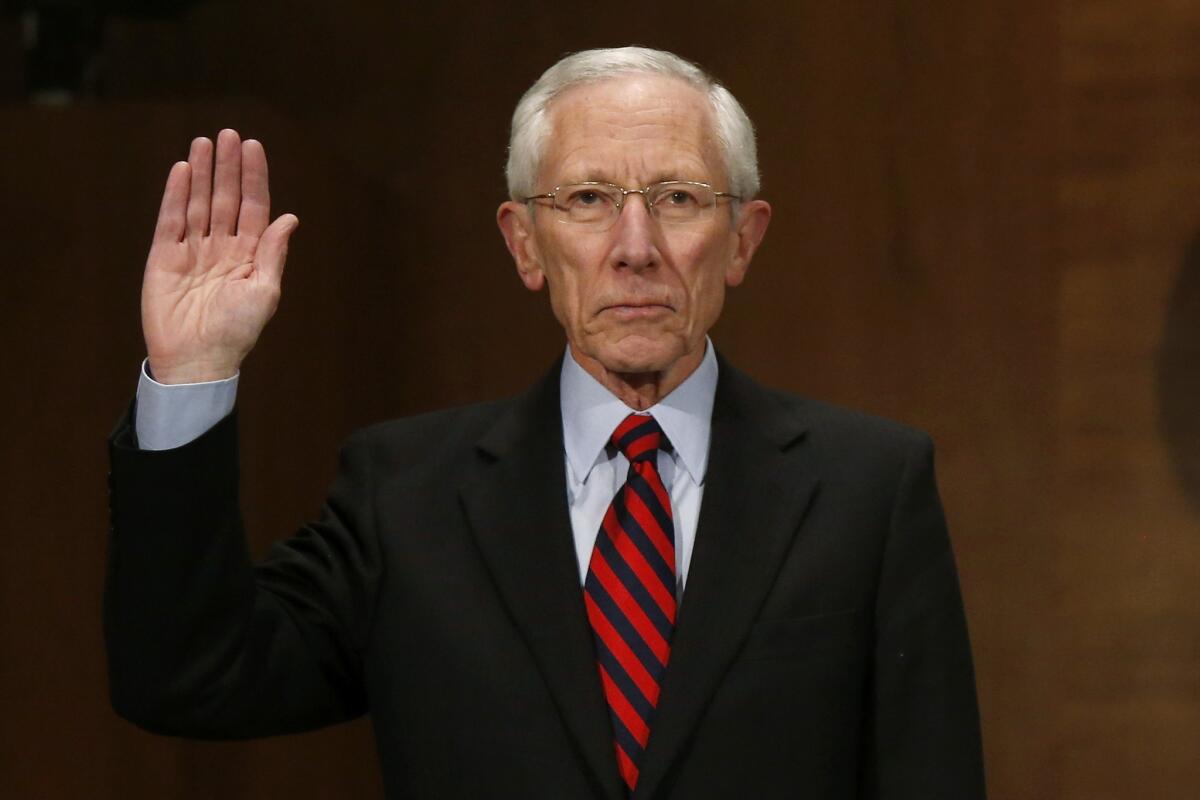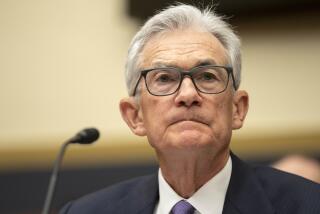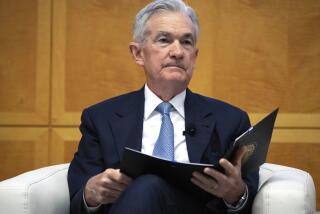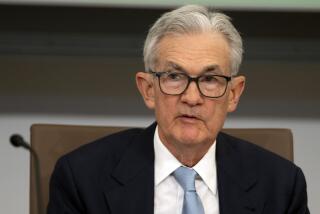Federal Reserve nominee Stanley Fischer defends Citigroup tenure

WASHINGTON -- Stanley Fischer, the former Bank of Israel president nominated for the Federal Reserve’s No. 2 job, defended his work on Wall Street and told senators at his confirmation hearing Thursday that he understood the effect of economic problems on average Americans.
Pressed more by Democrats than Republicans on his background, Fischer said his tenure as vice chairman of Citigroup Inc. from 2002 to 2005 was key to his ability to oversee financial institutions as a central banker.
“Without that experience, I would have come to it with largely an academic background, without ever having seen the inside of a bank,” Fischer said at his confirmation hearing. “I thought that experience was extremely valuable.”
PHOTOS: Federal Reserve chairs through the years
Fisher, 70, was nominated by President Obama in January to be the Fed’s vice chairman. He would fill the vacancy left when Janet L. Yellen rose from that position to lead the central bank.
The Senate Banking Committee considered Fischer’s nomination Thursday, along with those of two other Fed nominees: former Treasury official Lael Brainard and current Fed Governor Jerome H. Powell, whose term expired Jan. 31.
All three signaled they supported current Fed policy but that more needed to be done to help the economy and prevent future crises. After the 90-minute hearing, they appeared on track to be easily confirmed by the Senate.
But the focus was on Fischer, a highly respected economist with a wealth of experience, including top-level stints at the World Bank and the International Monetary Fund.
During his career, Fischer amassed assets worth $14.6 million to $56.3 million, according to the broad categories listed on his financial disclosure report from the Office of Government Ethics.
If confirmed, he has promised to sell his holdings in several financial firms, including American Express Co., BlackRock Inc., and a Citigroup employees fund.
Sen. Elizabeth Warren (D-Mass.) pressed Fischer on his Citigroup tenure, noting that the bank has strong clout among Democrats in Washington.
Three of the last four Democratic Treasury secretaries had Citigroup ties, she said, and asked if he was concerned about the “tight connection” between the firm and Washington.
Fischer said his experience there was invaluable and he did not have connections to other former Citigroup employees now in the Obama administration.
“It’s true that I worked at the same institution as some of the people now in government. We were not colleagues at the time,” Fischer said. “I don’t see that as a particular problem, at least in my case.”
Sen. Charles E. Schumer (D-N.Y.) came to Fischer’s defense.
“You’re one of the most brilliant people in terms of how a central bank should run … and you’ve also been somebody who has very broad experience,” he said, noting many regulators don’t understand the private sector.
“Three years at Citibank, I think, should be an asset rather than a liability if you use that to understand how to regulate institutions ... and I think you will, knowing you,” Schumer said.
Sen. Sherrod Brown (D-Ohio) also hit on the theme of the Fed being more worried about Wall Street than Main Street. Recently released Fed transcripts showed policymakers were more concerned about inflation than recession as the financial crisis began in 2008, he said.
Brown said he was concerned about a lack of diverse views at the Fed about what matters to average Americans.
Fischer, who dealt with the crisis as head of the Bank of Israel from 2005 to 2013, said that experience drove home the effect of financial downturns and that “slow growth is not an abstraction.”
“Slow growth is people not finding jobs. Slow growth is problems for families in meeting even their food bill,” he said.
“And if one doesn’t understand that, one can’t be a serious policymaker,” Fischer continued. “I think I understand that, Senator.”
Fischer said the Fed’s policies to deal with the 2008 financial crisis were “courageous and effective,” but the central bank still has work to do to restore the economy and prevent future crises.
The 6.7% unemployment rate is too high and requires the Fed to continue its “expansionary monetary policy,” though he acknowledged the central bank is “cautiously” reducing a key stimulus program.
He said the Fed should be “ever vigilant” in overseeing financial institutions and markets and “should never forget the human beings who are unemployed, nor the damage that high inflation wreaks on the economy and thus on the lives of so many people.”







